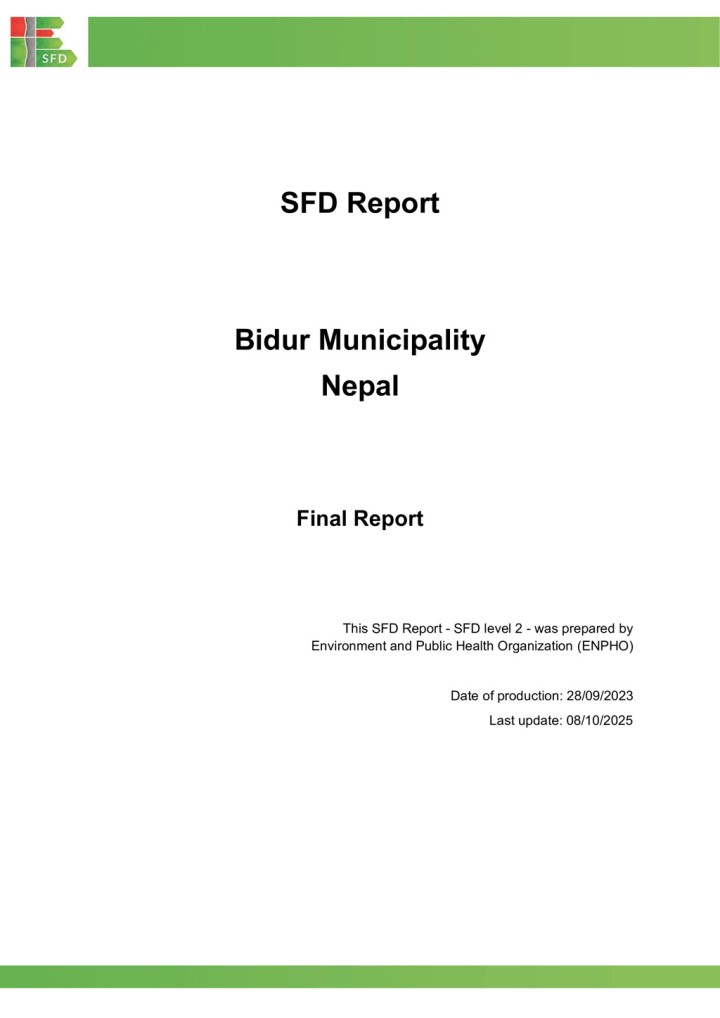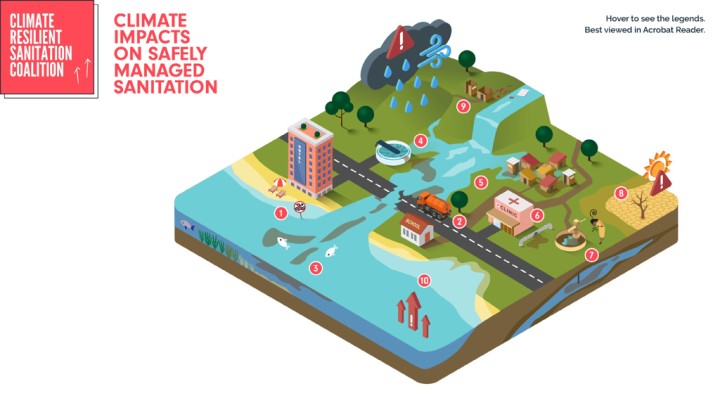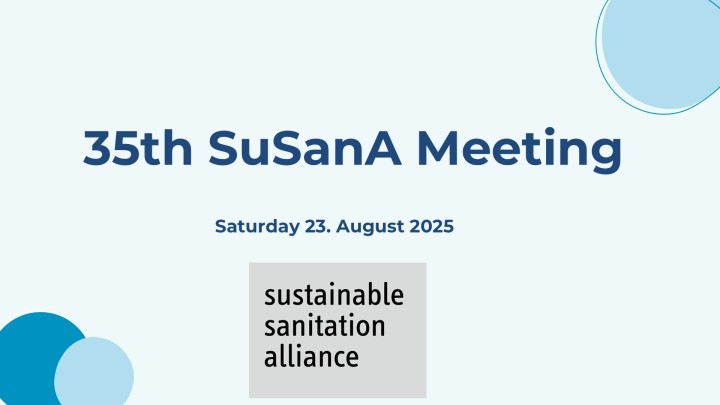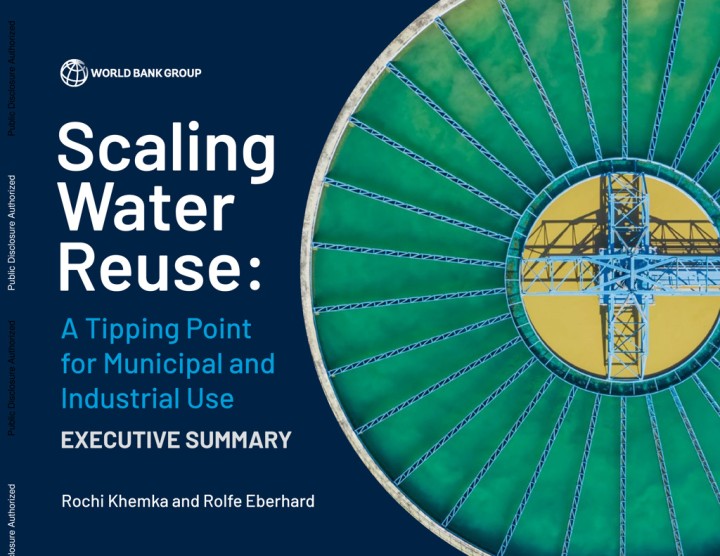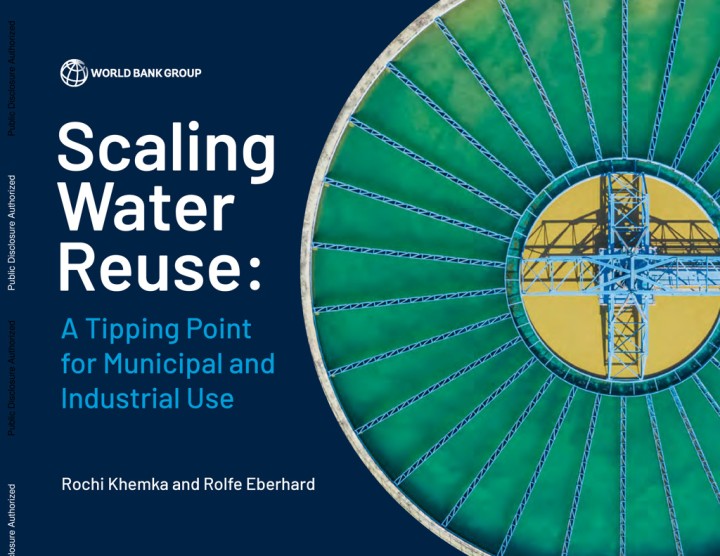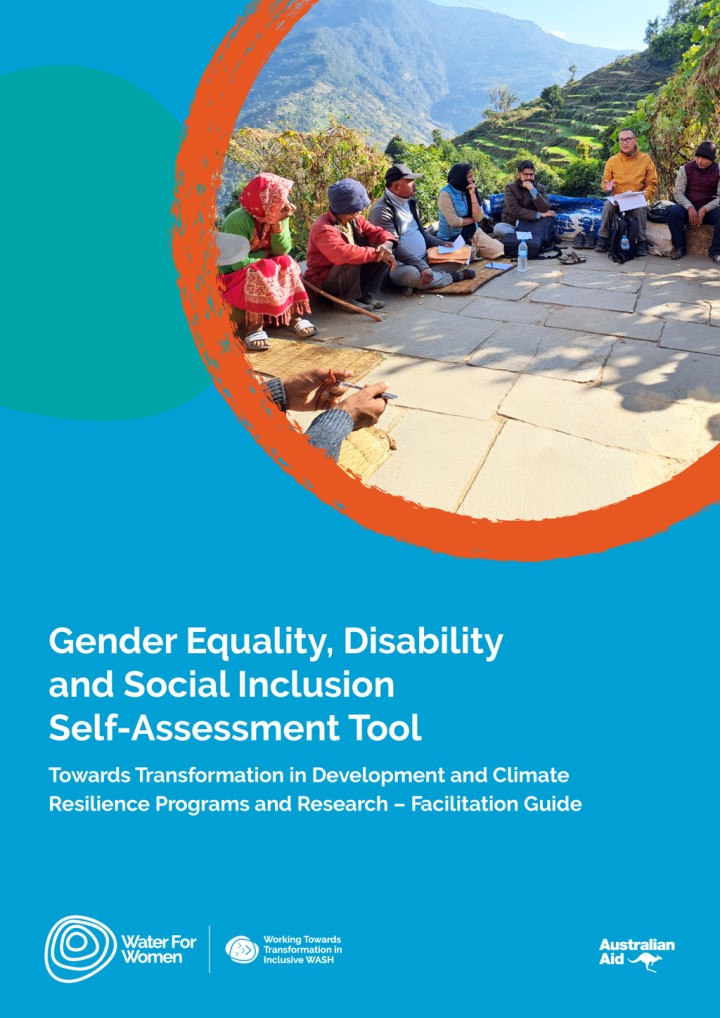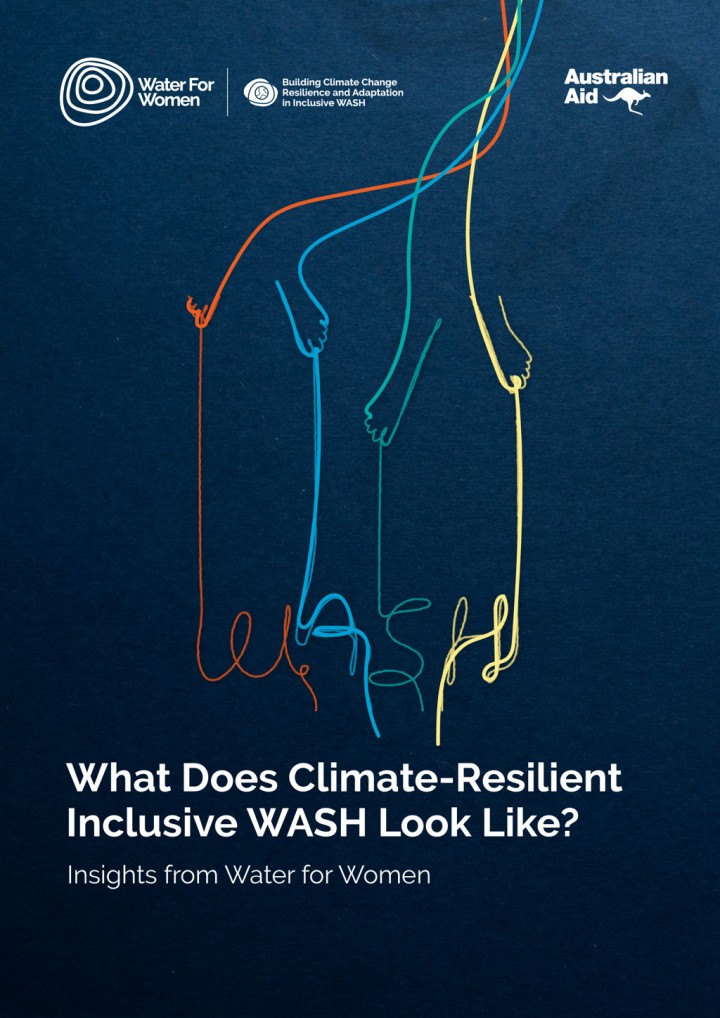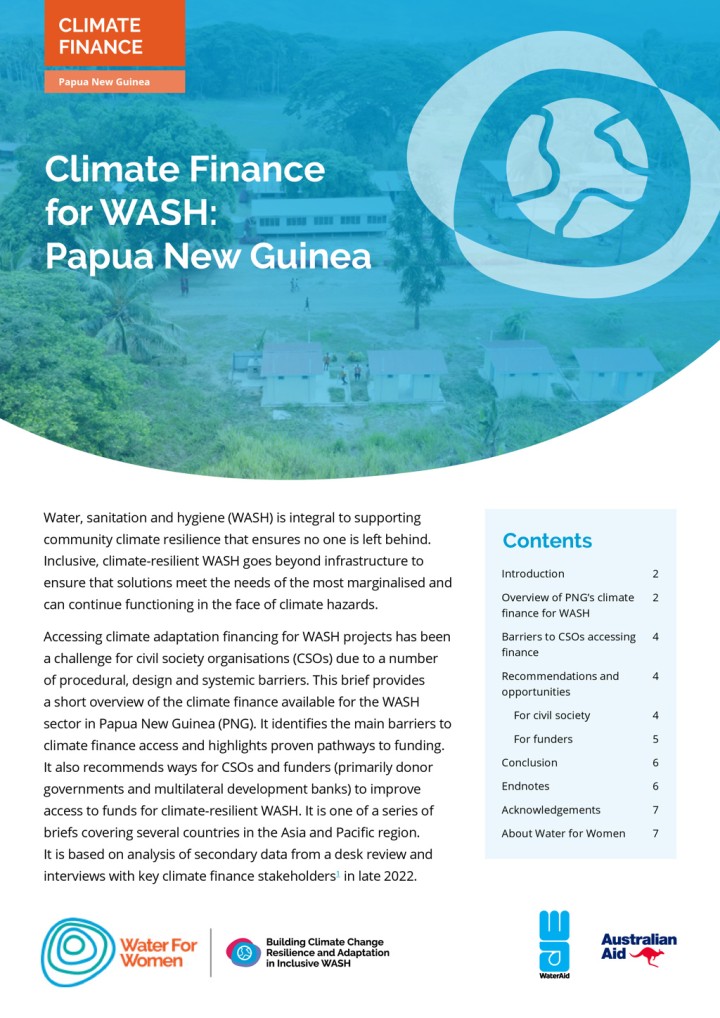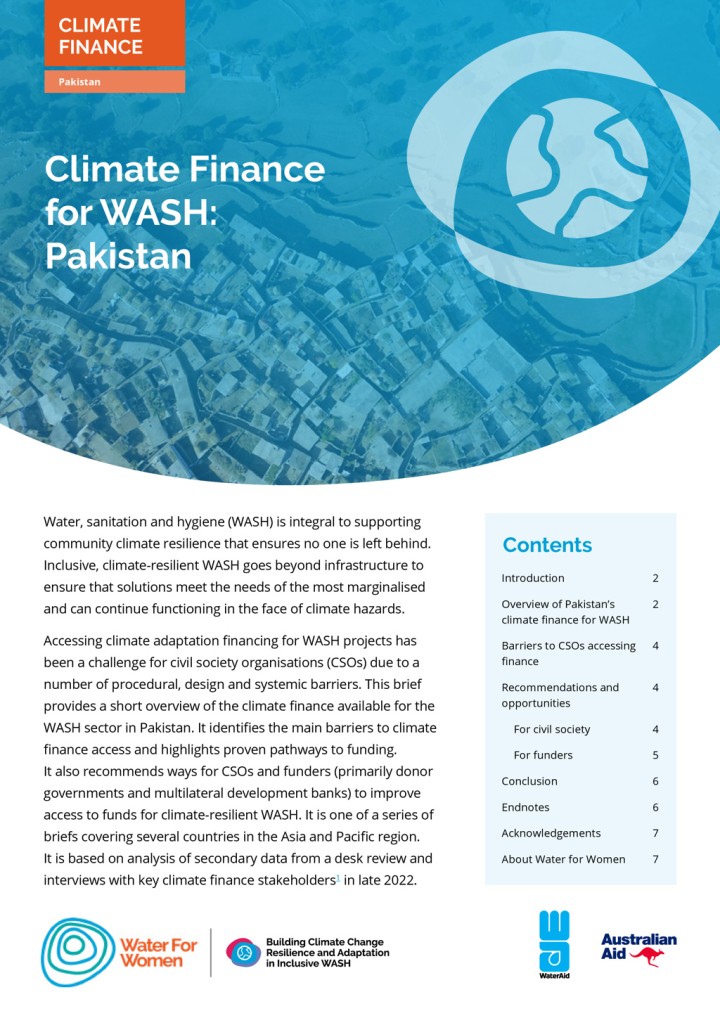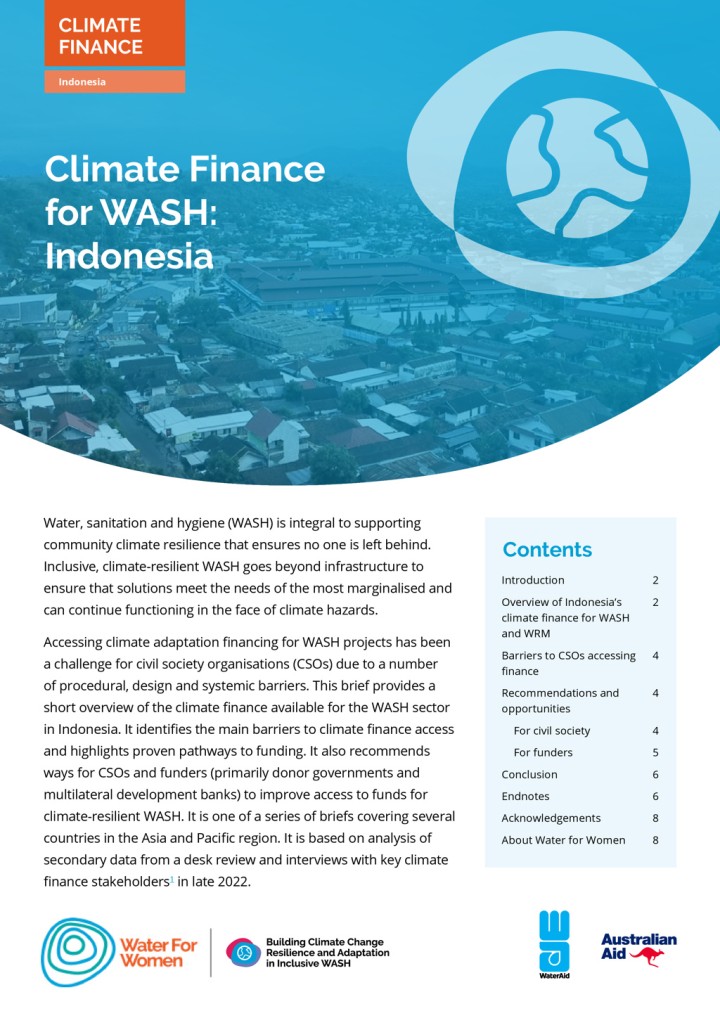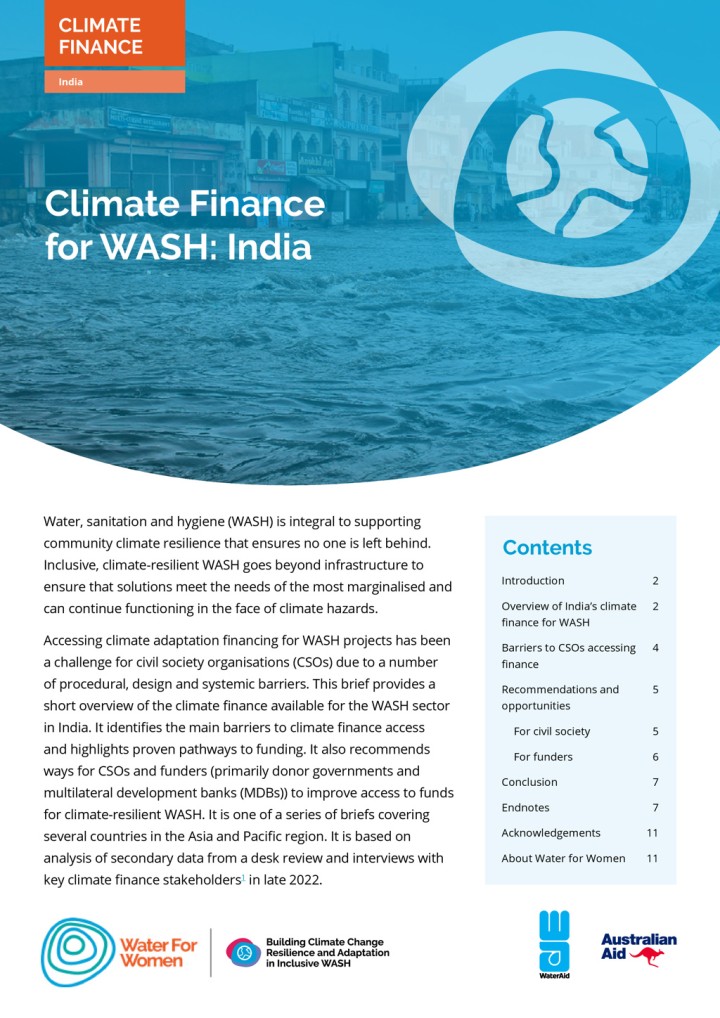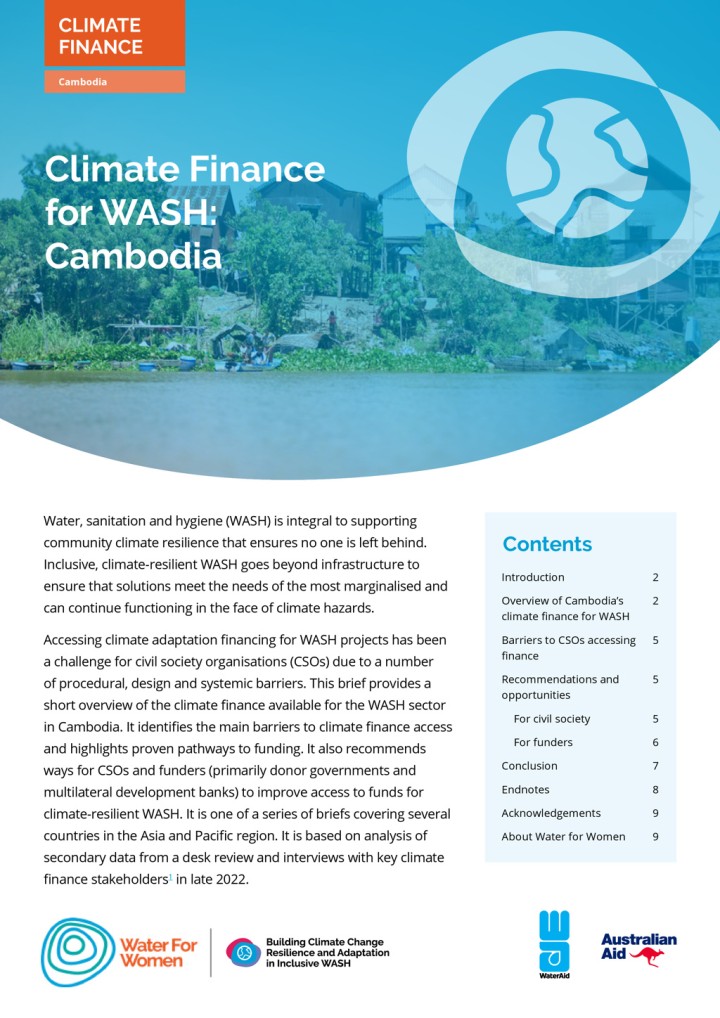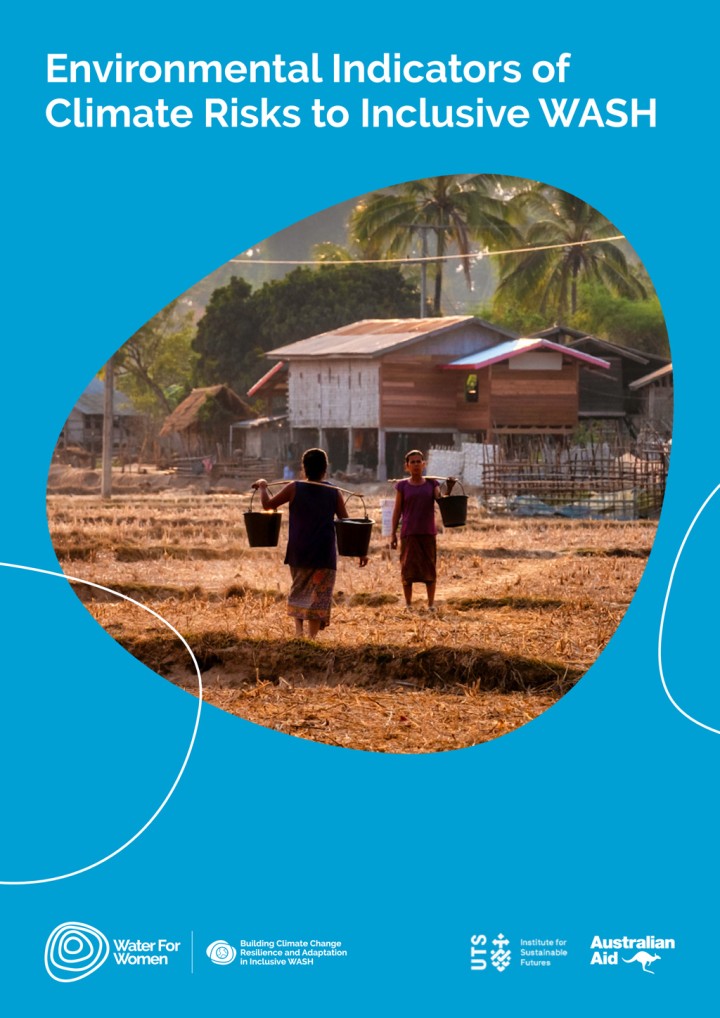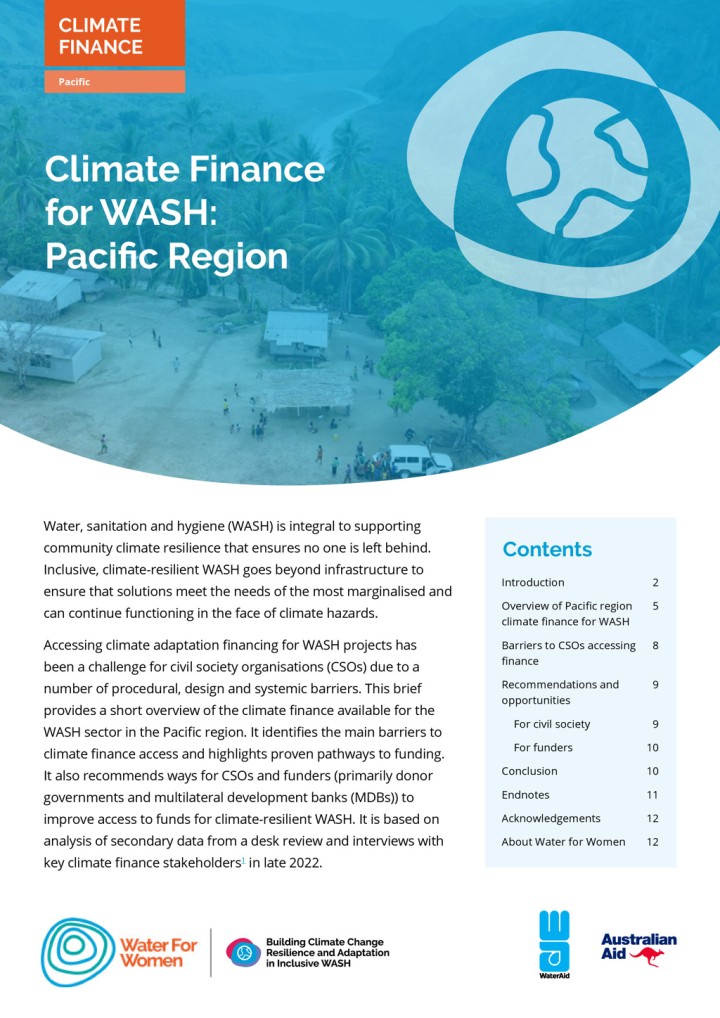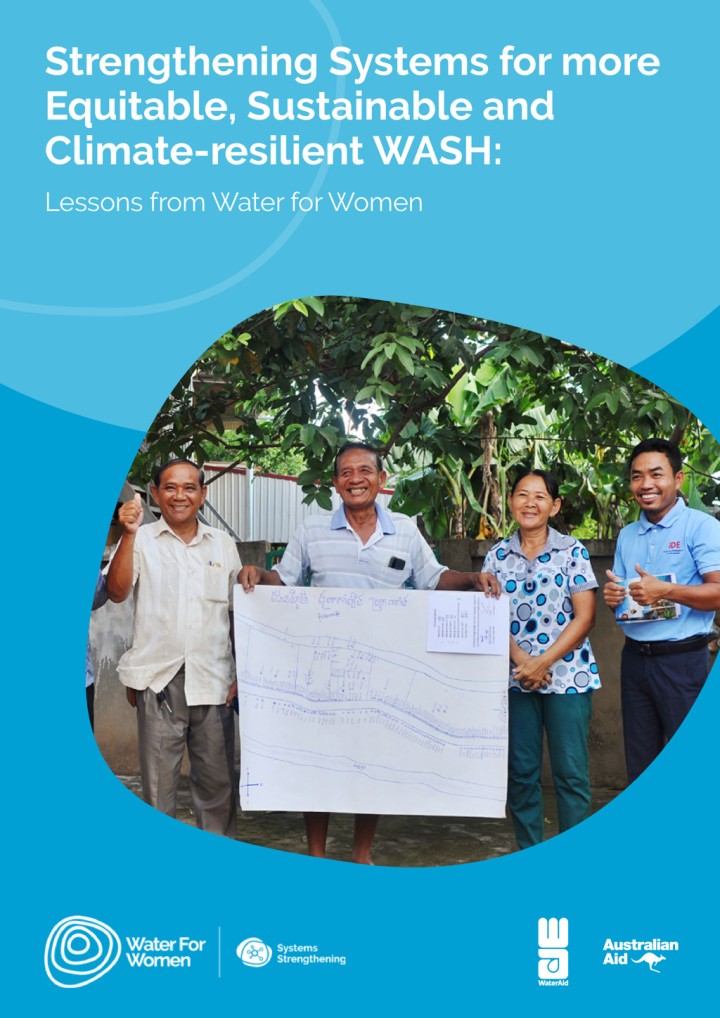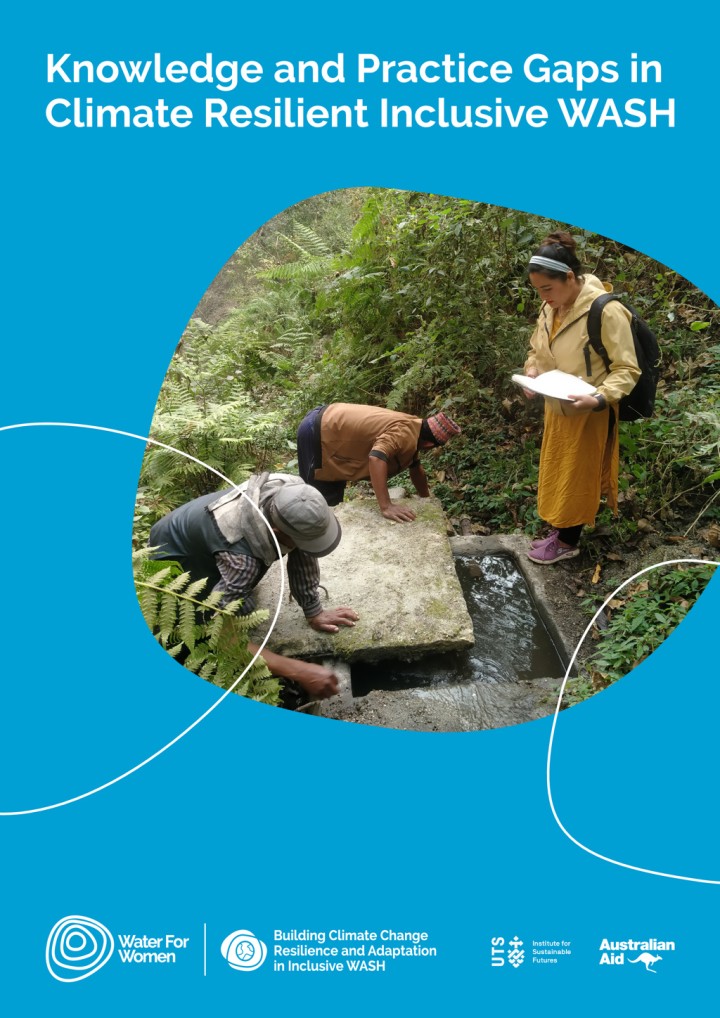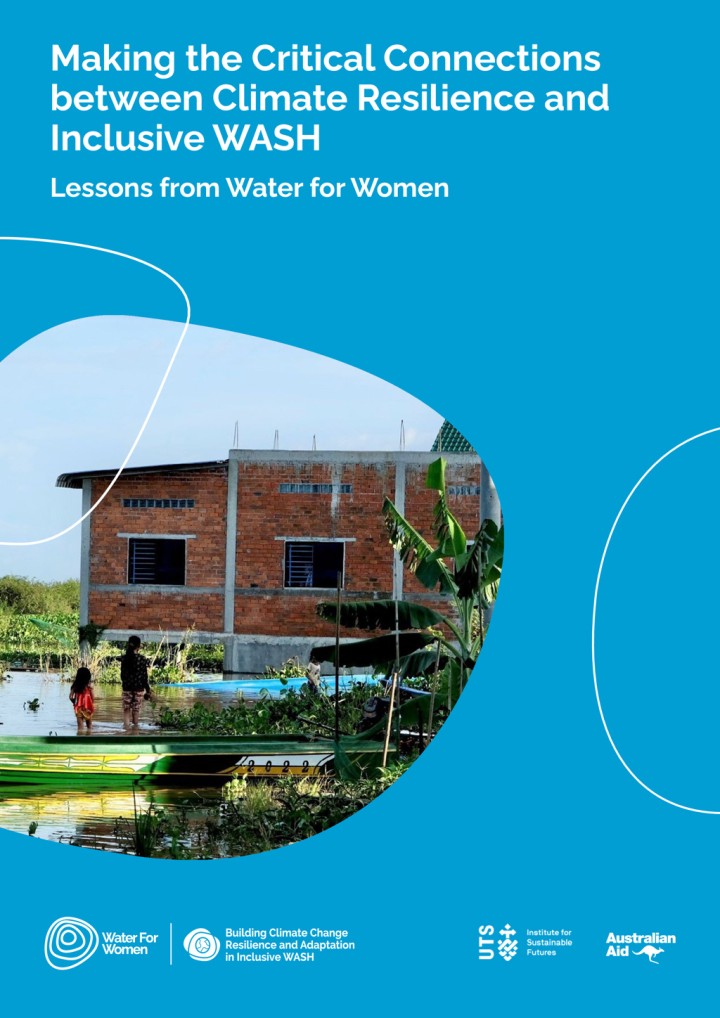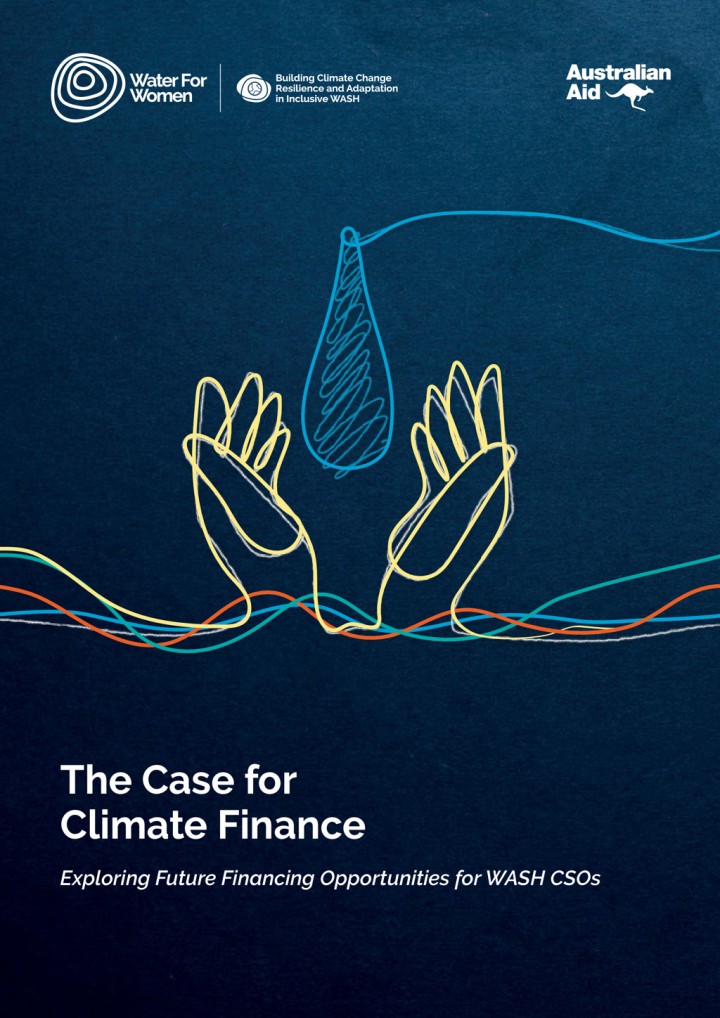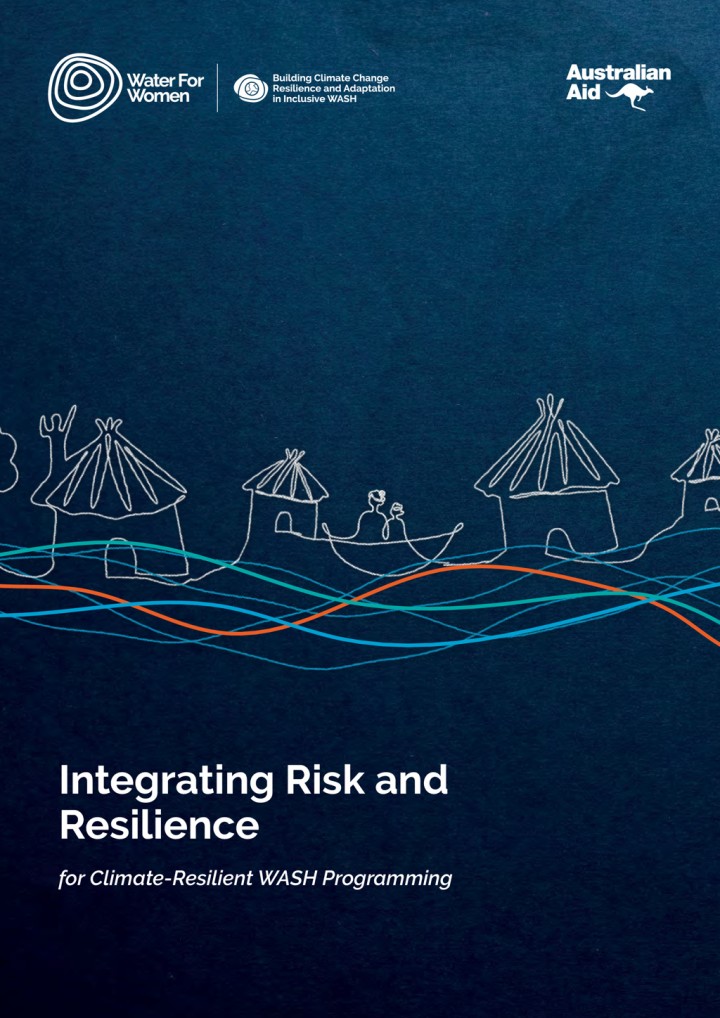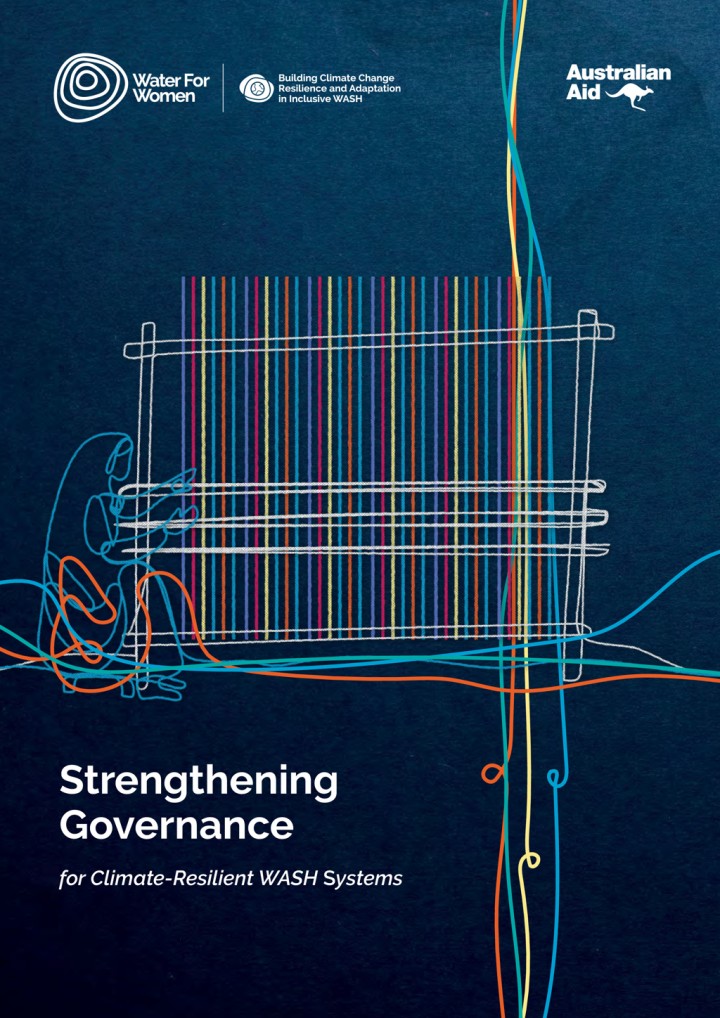Environment and Public Health Organization (ENPHO) (2023) SFD (Level 2) Report - Bidur Municipality
Bidur, a municipality is situated in Nuwakot district of Bagmati Province, Nepal which is located at 69 km northwest of Kathmandu Valley. It comprises of 13 political wards and spread over an area of 130.01 square kilometres consisting of plains and hilly plateaus (Bidur Municipality, 2024). It has a total population of 59,227 individuals across 15,234 households (NSO,2021). It has subtropics and sub-humid climate, with […]
Climate Resilient Sanitation Coalition (2025) Climate Resilient Sanitation Infographic
This infographic highlights how climate change threatens sanitation systems and, in turn, public health, ecosystems, and economies. It illustrates ten key impacts - from flooding, storms, and droughts to sea level rise and groundwater contamination- showing how fragile sanitation infrastructure can trigger cascading effects on tourism, marine ecosystems, and essential institutions.
SuSanA (2025) 35th SuSanA Meeting - Presentations, Recordings and further Resources
The 35th SuSanA Meeting took place on 23 August 2025. It was organised by the SuSanA Secretariat with support and contributions from the Global Steering Committee, SuSanA Partners, Members, Working Groups, Regional Chapters, and many others. This page serves as a central collection point for various resources from the meeting, including recordings, presentations, and an overview of the programme. We would like to once again thank all […]
Khemka, Rochi, and Eberhard, Rolfe (2025) Scaling Water Reuse: A Tipping Point for Municipal and Industrial Use - Executive Summary
Water reuse is no longer a marginal consideration; it is a strategic necessity. Around the world, cities and industries are under growing pressure from water scarcity, pollution, and climate stress. The treatment and reuse of used water offers a powerful and practical response—a dependable source that enhances water security, supports economic development, and strengthens climate resilience. This report makes a case […]
Khemka, Rochi, and Eberhard, Rolfe (2025) Scaling Water Reuse: A Tipping Point for Municipal and Industrial Use
Water reuse is no longer a marginal consideration; it is a strategic necessity. Around the world, cities and industries are under growing pressure from water scarcity, pollution, and climate stress. The treatment and reuse of used water offers a powerful and practical response—a dependable source that enhances water security, supports economic development, and strengthens climate resilience. This report makes a case […]
Water for Women (2025) Gender Equality and Social Inclusion Self-Assessment Tool (Revised Edition)
The Gender Equality, Disability and Social Inclusion Self-Assessment Tool (GEDSI SAT) is a facilitation guide for climate resilience and development program managers, GEDSI advisers, researchers and interested members of staff, designed to support individual and collective reflective practice on the extent and quality of gender equality, disability and social inclusion work in programs and organisations. Drawing on a wealth of experience from across Water for […]
Water for Women (2024) What Does Climate-Resilient Inclusive WASH Look Like? Insights from Water for Women
Under our collaborative Learning Agenda 2023-24, drawing on learnings from the implementation of climate-resilient and inclusive WASH projects and research across Asia–Pacific, partners sought to explore this fundamental learning question through a series of dedicated initiatives.
Nupur Khanna; Tanvi Oza; Paul Johnston (2023) Climate Finance for WASH: Papua New Guinea
Water, sanitation and hygiene (WASH) is integral to supporting community climate resilience that ensures no one is left behind. Inclusive, climate-resilient WASH goes beyond infrastructure to ensure that solutions meet the needs of the most marginalised and can continue functioning in the face of climate hazards. Accessing climate adaptation financing for WASH projects has been a challenge for civil society organisations (CSOs) due to a […]
Habib Ur Rehman; David Clatworthy (2023) Climate Finance for WASH: Pakistan
Water, sanitation and hygiene (WASH) is integral to supporting community climate resilience that ensures no one is left behind. Inclusive, climate-resilient WASH goes beyond infrastructure to ensure that solutions meet the needs of the most marginalised and can continue functioning in the face of climate hazards. Accessing climate adaptation financing for WASH projects has been a challenge for civil society organisations (CSOs) due to a […]
Wahyu Triwahyudi (2023) Climate Finance for WASH: Indonesia
Water, sanitation and hygiene (WASH) is integral to supporting community climate resilience that ensures no one is left behind. Inclusive, climate-resilient WASH goes beyond infrastructure to ensure that solutions meet the needs of the most marginalised and can continue functioning in the face of climate hazards. Accessing climate adaptation financing for WASH projects has been a challenge for civil society organisations (CSOs) due to a […]
Anirban Chatterjee (2023) Climate Finance for WASH: India
Water, sanitation and hygiene (WASH) is integral to supporting community climate resilience that ensures no one is left behind. Inclusive, climate-resilient WASH goes beyond infrastructure to ensure that solutions meet the needs of the most marginalised and can continue functioning in the face of climate hazards. Accessing climate adaptation financing for WASH projects has been a challenge for civil society organisations (CSOs) due to a […]
Paul Johnston; Tyler Kozole (2023) Climate Finance for WASH: Cambodia
Water, sanitation and hygiene (WASH) is integral to supporting community climate resilience that ensures no one is left behind. Inclusive, climate-resilient WASH goes beyond infrastructure to ensure that solutions meet the needs of the most marginalised and can continue functioning in the face of climate hazards. Accessing climate adaptation financing for WASH projects has been a challenge for civil society organisations (CSOs) due to a […]
Water for Women (2023) Environmental Indicators of Climate Risks to Inclusive WASH
This learning resource summarises a range of indicators that WASH service authorities and their civil society organisations (CSOs) can use to monitor the key risks of six climate hazards to household WASH access. Specifically, the indicators pertain to changes in the natural or built environment that may be outside the sphere of control of a WASH program.
Water for Women (2023) Climate Finance for WASH: Pacific Region
Accessing climate adaptation financing for WASH projects has been a challenge for civil society organisations due to a number of procedural, design and systemic barriers. To address this challenge, a consortium of Water for Women partners developed a series of briefs on climate finance for the WASH sector in Asia and the Pacific. The Pacific regional brief is available along with five country-specific briefs.
Water for Women (2023) Strengthening Systems for more Equitable, Sustainable and Climate-resilient WASH: Lessons from Water for Women
This systems strengthening series shares lessons from Water for Women about how CSOs and research organisations can contribute to stronger systems for inclusive and sustainable WASH.
Water for Women (2022) Knowledge and Practice Gaps in Climate Resilient Inclusive WASH
This report outlines the unique strengths and contributions that Water for Women can make to building climate change resilience and adaptation in inclusive water, sanitation and hygiene (WASH), through contributions to the regional and global WASH sector and enhanced internal capacity.
Water for Women (2021) Making the Critical Connections between Climate Resilience and Inclusive WASH Lessons from Water for Women
As part of a learning initiative under Water for Women’s Learning Agenda, This report features 12 vignettes from Water for Women partners working on projects in the Asia-Pacific that are helping to build climate resilience through inclusive and sustainable WASH programs and research. It also outlines recommendations from the partners for strengthening climate resilience for inclusive WASH at different levels.
Water for Women (2025) The Case for Climate Finance Exploring Future Financing Opportunities for WASH CSOs
This learning brief shares key findings and insight into climate finance, including the current funding landscape and its relevance to WASH actors. • The rise of climate finance marks a transformative shift in the global approach to climate change, with significant implications for a wide range of stakeholders • With global reductions in official development assistance, civil society organisations (CSOs) are under increasing pressure to find […]
Water for Women (2025) Integrating Risk and Resilience for Climate-Resilient WASH Programming
This brief shares key findings and insights from the first learning group (1) about integrating risk and resilience considerations for climate-resilient WASH programming. Definitions of climate risk and resilience and the application of the concepts are diverse and still evolving, including for the WASH sector. • ‘Climate risk’ is commonly understood as the potential for an adverse outcome influenced by the climate or a climate […]
Water for Women (2025) Strengthening Governance for Climate-Resilient WASH Systems
This brief shares key findings and insights from the second learning group (2) about strengthening governance for climate-resilient WASH systems. • WASH sector stakeholders are increasing efforts to strengthen the climate resilience of WASH development globally. • Integrating climate risk and resilience into WASH governance systems is central to these efforts, but is a new reform area in most settings. • Many frameworks for climate risk and resilience […]
